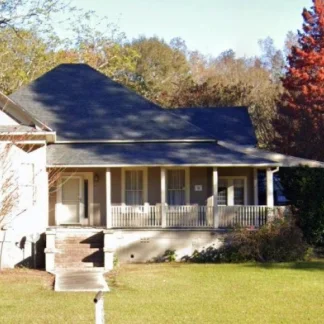Region XI Southwest MS - Childrens Services - IMPACT Program
Region XI Southwest MS – Childrens Services – IMPACT Program is a private rehab ...
Jolimar Recovery offers outpatient and intensive outpatient treatment for individuals with alcohol and/or substance addiction. The program includes family programs, aftercare programs, assessment, aftercare support and more. Jolimar Recovery is located at Summit, Mississippi.
Contact us for more information: (601) 276-9556

Connect with Jolimar Recovery by calling their admissions team directly.
(601) 276-9556 Website Get DirectionsWhether a marriage or other committed relationship, an intimate partnership is one of the most important aspects of a person's life. Drug and alcohol addiction affects both members of a couple in deep and meaningful ways, as does rehab and recovery. Couples therapy and other couples-focused treatment programs are significant parts of exploring triggers of addiction, as well as learning how to build healthy patterns to support ongoing sobriety.
Active family involvement is an integral part of the treatment and is essential to the families' continuing recovery from a primary and progressive family illness. In order to effectively address the negative impact of alcohol and drug dependency upon the family system and personal relationships, family groups, individual family sessions and orientation to the twelve step recovery principles of Al-Anon, Al-Ateen, AA and NA are provided as an integral part of the treatment and recovery process. Individual sessions with you and your family members are available for the purpose of sharing feelings, exploring conflicts in family relationships, problem resolutions,setting boundaries, seeing family members positive and negative traits ,developing personal growth of individual family members and their relationship with one another and recovery planning for the family. Individual family sessions are scheduled by appointment with your counselor.
Group therapy is any therapeutic work that happens in a group (not one-on-one). There are a number of different group therapy modalities, including support groups, experiential therapy, psycho-education, and more. Group therapy involves treatment as well as processing interaction between group members.
In individual therapy, a patient meets one-on-one with a trained psychologist or counselor. Therapy is a pivotal part of effective substance abuse treatment, as it often covers root causes of addiction, including challenges faced by the patient in their social, family, and work/school life.
Active family involvement is an integral part of the treatment and is essential to the families' continuing recovery from a primary and progressive family illness. In order to effectively address the negative impact of alcohol and drug dependency upon the family system and personal relationships, family groups, individual family sessions and orientation to the twelve step recovery principles of Al-Anon, Al-Ateen, AA and NA are provided as an integral part of the treatment and recovery process. Individual sessions with you and your family members are available for the purpose of sharing feelings, exploring conflicts in family relationships, problem resolutions,setting boundaries, seeing family members positive and negative traits ,developing personal growth of individual family members and their relationship with one another and recovery planning for the family. Individual family sessions are scheduled by appointment with your counselor.
Group therapy is any therapeutic work that happens in a group (not one-on-one). There are a number of different group therapy modalities, including support groups, experiential therapy, psycho-education, and more. Group therapy involves treatment as well as processing interaction between group members.
In individual therapy, a patient meets one-on-one with a trained psychologist or counselor. Therapy is a pivotal part of effective substance abuse treatment, as it often covers root causes of addiction, including challenges faced by the patient in their social, family, and work/school life.
Group therapy is any therapeutic work that happens in a group (not one-on-one). There are a number of different group therapy modalities, including support groups, experiential therapy, psycho-education, and more. Group therapy involves treatment as well as processing interaction between group members.
In individual therapy, a patient meets one-on-one with a trained psychologist or counselor. Therapy is a pivotal part of effective substance abuse treatment, as it often covers root causes of addiction, including challenges faced by the patient in their social, family, and work/school life.
In individual therapy, a patient meets one-on-one with a trained psychologist or counselor. Therapy is a pivotal part of effective substance abuse treatment, as it often covers root causes of addiction, including challenges faced by the patient in their social, family, and work/school life.
Region XI Southwest MS – Childrens Services – IMPACT Program is a private rehab ...
AA – Alcoholics Anonymous is a private rehab located in Mccomb, Mississippi. AA ...
Pine Grove Outreach Center is a private rehab located in Mccomb, Mississippi. Pi...
Hospitality PSR Program is a private rehab located in McComb, MS. Hospitality PS...